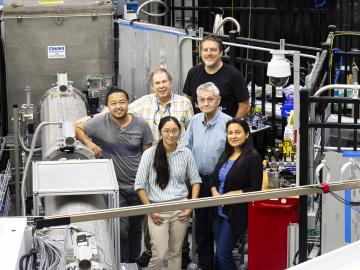
In response to a renewed international interest in molten salt reactors, researchers from the Department of Energy’s Oak Ridge National Laboratory have developed a novel technique to visualize molten salt intrusion in graphite.

In response to a renewed international interest in molten salt reactors, researchers from the Department of Energy’s Oak Ridge National Laboratory have developed a novel technique to visualize molten salt intrusion in graphite.

Autonomous labs are changing the nature of scientific investigation. Instead of humans manually orchestrating every part of an experiment, programmed equipment can carry out necessary functions.

Xiao-Ying Yu, a distinguished scientist at the Department of Energy’s Oak Ridge National Laboratory, has been named a Fellow of AVS: Science and Technology of Materials, Interfaces, and Processing, formerly American Vacuum Society.
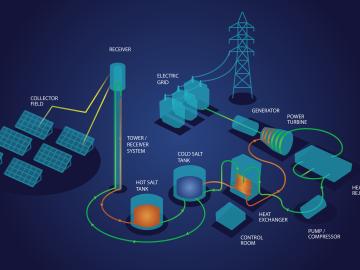
Oak Ridge National Laboratory scientists recently demonstrated a low-temperature, safe route to purifying molten chloride salts that minimizes their ability to corrode metals.
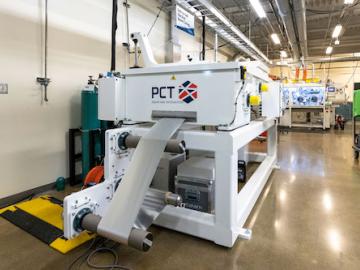
Researchers at the Department of Energy’s Oak Ridge National Laboratory and their technologies have received seven 2022 R&D 100 Awards, plus special recognition for a battery-related green technology product.
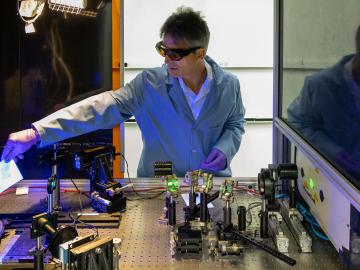
A multidisciplinary team of scientists at ORNL has applied a laser-interference structuring, or LIS, technique that makes significant strides toward eliminating the need for hazardous chemicals in corrosion protection for vehicles.

Six ORNL scientists have been elected as fellows to the American Association for the Advancement of Science, or AAAS.

Five researchers at the Department of Energy’s Oak Ridge National Laboratory have been named ORNL Corporate Fellows in recognition of significant career accomplishments and continued leadership in their scientific fields.

OAK RIDGE, Tenn., Feb. 12, 2020 -- Michael Brady, a researcher at the Department of Energy’s Oak Ridge National Laboratory, has been named fellow of the National Association of Corrosion Engineers, or NACE International.
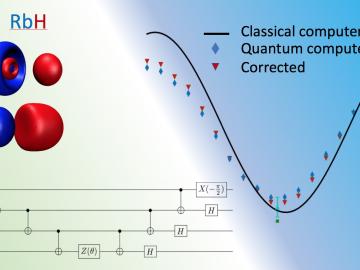
Researchers at ORNL have developed a quantum chemistry simulation benchmark to evaluate the performance of quantum devices and guide the development of applications for future quantum computers.

